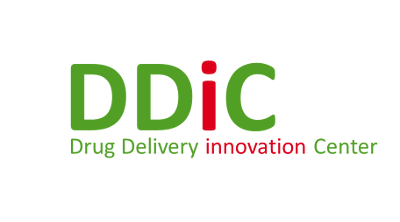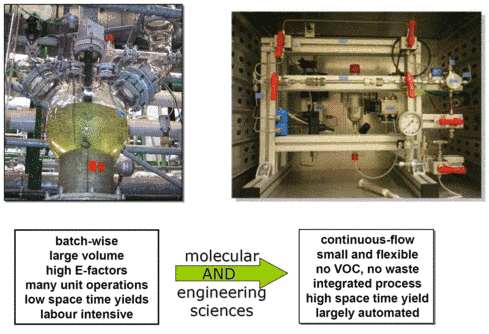SYNFLOW
Project objectives
Widespread, low-cost and high-quality sustainable chemistry production has been identified as a key challenge for future industrial competitiveness in Europe. SYNFLOW addresses this issue by developing the basis for new and widely applicable sustainable production technologies in low to medium scale chemical production. The vision of SYNFLOW is to shift paradigm from batch-wise large volume processes comprising many separate unit operations to highly integrated and yet flexible catalytic continuous-flow processing. This will be achieved by a unique integrative approach combining molecular understanding of synthesis and catalysis with engineering science in process design and plant concepts.
INVITE's contribution
The INVITE team contributes to the project by providing innovative engineering solutions for the specific challenges associated with the approach described above. This includes the development of novel reactor concepts as well as highly efficient continuous-flow processes. Furthermore, INVITE provides the Backbone-Facility for the demonstration of these processes. INVITE thus plays a key role in realizing and demonstrating the SYNFLOW concept on a reasonable scale with respect to robustness and product quality.
Project partner
- RWTH Aachen University (Coordinator), Germany
- AstraZeneca, UK
- Bayer Technology Services GmbH, Germany
- Invite GmbH, Germany
- Britest Ltd., UK
- CNRS, France
- DECHEMA - Society for Chem. Engineering and Biotechnology e.V., Germany
- Technical University of Denmark, Denmark
- Evonik Oxeno GmbH, Germany
- Johnson Matthey, UK
- University of Bucharest, Romania
- University of Erlangen-Nuremberg, Germany
- Gothenburg University, Sweden
- Università degli Studi di Napoli Federico II, Italy
- University of Nottingham, UK
- Uppsala University, Sweden
- University of Rennes, France
- Universitat Rovira i Virgili Tarragona, Spain
- University of St. Andrews, UK
- University of Warwick, UK
Funding
Project duration
4 years up to 31.08.2014




